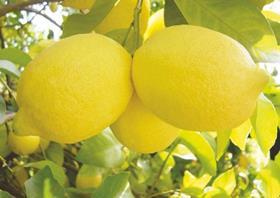
The new Chinese protocol for South African citrus exports came into effect at the end of August this year. While there will be some immediate benefits, South Africans believe they will only see the main advantages next year.
Citrus industry commentators have said that South African lemons could possibly be the biggest winners from the revised protocol.
“With local lemon production expected to grow by 175,000 metric tonnes by 2024, the finalisation of the revised protocol means China will now become a critical new market for this growth and will secure R325m in new export revenue and secure 800 jobs in the industry,” said South Africa's Citrus Grower Association (CGA).
South African citrus growers have waited a long time for the final touches to be applied to the revised protocol. It took six years, following a request submitted by the citrus industry to exempt lemons from the current regulatory requirements for False Codling Moth (FCM) in the light of the category not being a host for the pest.
The CGA said that up to now, Argentina and Chile had dominated Southern Hemisphere lemon exports to China. “However, once the revised protocol is in place, South Africa is expected to surpass both countries, exporting 25,000 tonnes of lemons to China by 2024.”
This year South Africa also recorded the first shipment of South African citrus to the Philippines, which could result in new export earnings of close to R205m annually.
The Chinese protocol for South African lemons is likely to also boost the drive for seedless lemons in South Africa.
Nico van Staden, chief executive of Core, shippers of ClemenGold and other citrus brands produced by the ClemenGold company, said the group was excited to promote the LemonGold citrus brand in China.
“We had a good season so far with ClemenGold mandarins in China against the background of great support in brand development from the ClemenGold company,' he said. 'We believe that a lot of our focus in future will be on China and that our LemonGold seedlees brand will be very well received.”
South Africans in general will be pleased with progress made in gaining access to China, although at times it has been painstakingly slow.
The apple and pear industry is hopeful that the long awaited sign-off for the entry of South African pears to China will be concluded soon. This will mean that South African pears will be exported to China in the next season starting in January.
The avocado industry is also confident that they will soon also get access to China. Experts believe that if all goes well the avocado protocol could be signed at the end of the year, making the first exports possible in 2022.
Thereafter, several other industries, including stonefruit, are hopeful that they will start the process of getting access.
On the other side of the world, in the US, where the South African citrus industry has now been waiting more than two years for the signing off a final order to expand access for South African citrus from its northern regions, the process has stalled.
Hopes that the Biden administration would accelerate the process have been dashed.
Reports have indicated that the US authorities are now looking for more countertrade opportunities to be included, for example better access for their poultry products. In this environment it is unlikely to predict when the process will be completed.



